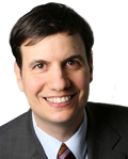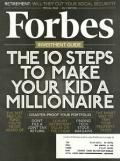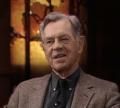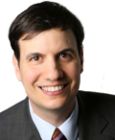
Dreaming
Can You Follow Your Dreams and 'Make It' in This World?
Doing what you love: Is following your heart really worthless?
Posted June 11, 2012

A few months ago I came across a discarded copy of the September 2011 Forbes magazine. The cover teased: “The 10 Steps To Make Your Kid A Millionaire”.
Twenty years ago today, I would not have picked up this magazine. Instead, I would have chosen an earmarked Modern Drummer magazine or maybe a crumpled up Rolling Stone. About twenty years ago today, I was a drummer in a rock band looking to ‘make it.’
What made me want to be a musician and not care about money?
Well, in high school, about 30 years ago today, I listened closely to the words of my mentor Ferris Bueller, who taught me to look around and enjoy life. Ferris warned that if I did not start to look around, “I might miss it” (yes, I actually cut a typing class to go see that movie, unwitting to the plot).
In college, my ‘oh captain my captain’ was everyone’s favorite teacher, Mr. Keating, from Dead Poet’s Society. Mr. Keating captured the inertia of my college years with the pithy theme carpe diem — seize the day.
And of course, there was my spiritual father, who coined the phrase "follow your bliss": Joseph Campbell of the Power of Myth series with Bill Moyers. Campbell was able to explain a world of myth and how it related to my life’s hero’s journey.
So, with all this belief in ‘doing what you love,’ why would I sheepishly pick up this Forbes magazine today?

Because my priority was clear: Artistic expression was out and paternal angst was in.
Because, now, I am the father of a 4-year-old. Because life experience and being in a rock band for eight years taught me that doing what you love is not always congruent with making enough money to eat and keep shelter. After those fun and hearing-destructive eight years (… am I yelling?), I gave up the sticks, and went to medical school and became a naturopathic physician. My mom got to finally say those words “my son, the doctor.” And I became someone who was more able to earn an income — I am lucky, for it is still a pretty fun job, but definitely not as loud.

Now, I pick up this Forbes magazine, as the father of a 4-year-old. Twenty years ago today my questions would have been centered around how to create a solid hooky rhythm in an original rock song that won’t step on the lead vocal. Now, the questions swirling in my head are:
- How can I assure my daughter’s future?
- What kind of world will she inherit, and what can I do to protect her survival?
- Is Waldorf’s pre-pre school going to prepare her for the Ivy League?
- Is the Ivy League even in her best interest, for research shows most company CEO’s come from state schools?

"Follow your bliss."
Ahhh ... the questions and concerns. So, now, in a tizzy, I pick up this Forbes magazine and feverishly turn the page to find the lead story. Somewhat surprising to me, what I learn is that first step of ten is:
“Don’t Overeducate”
This number one piece of advice goes on to explain that a physician may wind up with only slightly more spendable money than a plumber (I probably shouldn’t tell my mother). It also goes on to furnish the results from a Georgetown Study regarding high and low payoff majors (from the Georgetown University Center on Education and the Workforce) — I was horrified:
High Payoff Majors (Median Earnings per year)
Petroleum Engineering $120,000
Pharmacy $105,000
Math/Computers $98,000
Low Payoff Majors (Median Earnings):
Theology $38,000
Early Childhood Education $36,000
Psychology $29,000
Maybe I am being negative here, but the message this is sending to me is:
#1 – Oil and drugs are what pay.
#2 – Studying about God doesn’t pay
#3 – Teaching children doesn’t pay
#4 – Psychology is the most worthless thing of all to study
Now, before I became a naturopathic physician, I seriously considered studying theology instead. To me, it made sense that one way to understand the world is to understand how we relate to our sense of a higher being. Apparently, there is no real world monetary value to this.
My wife, Dr. Pina LoGiudice, who is a regular guest naturopathic physician on The Dr. Oz Show, was a psychology major in college at the University of Rochester (she’s really good, if you want to check out her videos). And she seems to be doing pretty well. I always thought that the work we put into our children’s growth from a young age will ultimately show in both in a future generation’s physical health and also emotional well-being. According to Forbes, teaching the next generation has no cash value either.
A Question for You
If you are reading this website, like myself, you likely think there is value is psychology — but, like art and music, it seems that unless you can create a business hook of some kind to create a commercial success and generate passive income around it, it holds little value in terms of today’s real dollars.
So, I put it to you, as the reader: What do you recommend I tell my daughter when she enters college in 15 years?
Do I tell her to follow her heart, and do what she loves, for the money will follow?
Do I explain to her it is good to do something you love, but let’s worry more about making sure you are making money first, and are well-fed?
What do you think?
As a Dad still traversing the world of practicality versus the world of following one’s heart, I would love to hear your thoughts …

My Sophia



